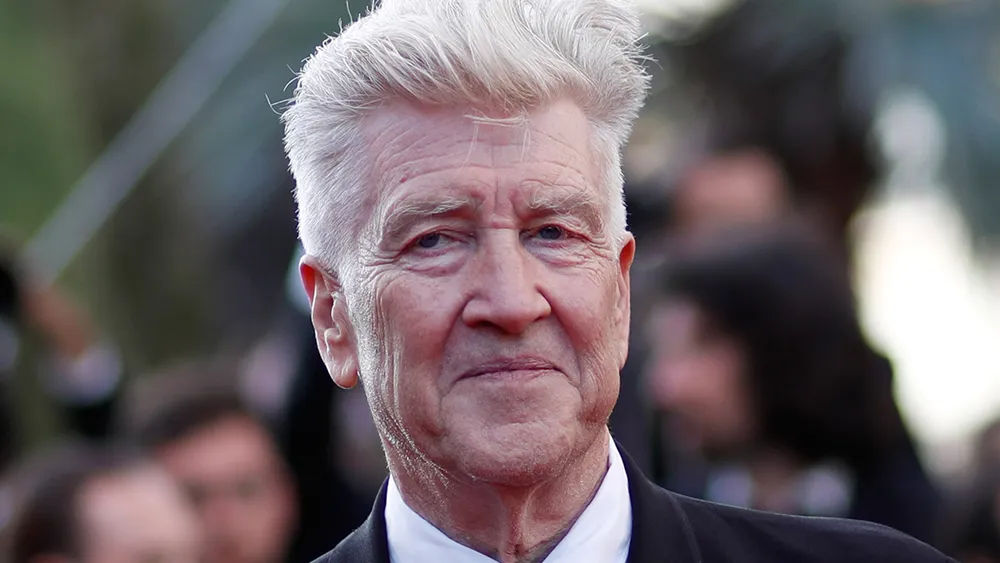Steven Spielberg, Ron Howard and more have paid tribute to David Lynch, the visionary director behind “Twin Peaks” and “Blue Velvet” who died at 78 years old.
“I loved David’s films. ‘Blue Velvet,’ ‘Mulholland Drive’ and ‘Elephant Man’ defined him as a singular, visionary dreamer who directed films that felt handmade,” Spielberg said in a statement. “I got to know David when he played John Ford in ‘The Fabelmans.’ Here was one of my heroes—David Lynch playing one of my heroes. It was surreal and seemed like a scene out of one of David’s own movies. The world is going to miss such an original and unique voice. His films have already stood the test of time and they always will.”
Last year, Lynch revealed that he had been diagnosed with emphysema after a lifetime of smoking, and would likely not be able to leave his house to direct any more. His family announced his death in a Facebook post, writing, “There’s a big hole in the world now that he’s no longer with us. But, as he would say, ‘Keep your eye on the donut and not on the hole.’”
Howard called Lynch “a gracious man and fearless artist who followed his heart & soul and proved that radical experimentation could yield unforgettable cinema” in a post on X.
James Gunn said “you inspired so many of us,” while Patton Oswalt nodded to Lynch’s surrealist style by saying: “RIP. At least that’s what the horse wearing a fez just told me* in a dream. (*Backwards and in Swedish).”
“I Saw the TV Glow” director Jane Schoenbrun posted a tribute on X: “Like Kafka, like Bacon, he dedicated his life to opening a portal. He was the first to show me another world, a beautiful one of love and danger I sensed but had never seen outside sleep. Thank you David your gift will reverberate for the rest of my life.”
The American Film Institute, where Lynch graduated from in 1970, called him “an American original” in a statement.
“And the stories are true – as a foundational Fellow at the American Film Institute, he lived in the stables of Greystone while filming his AFI Thesis Film – ERASERHEAD. Across the decades, David’s impact on cinema proved indelible in his films and his art – and he always gave back to AFI – supportive of the storytellers who wrote their own rules and reached for something different,” the statement continued. “During a seminar on campus, he shared this timeless advice with Fellows: ‘Tell the stories that are inside you. Each person has these stories that come along. Just stay true to those ideas and enjoy the doing of it.’ He will live on in our dreams.”
Lesli Linka Glatter, president of the Directors Guild of America, said in a statement, “There is simply no one like David. He was a visionary at his core – elevating visual storytelling in film and television to a whole new level, inspiring so many directors to take risks and see new possibilities. He took a chance on me as a young director just starting out when I joined him on ‘Twin Peaks’ in the early 1990s, transforming my life, and I will be forever grateful for having known him. In every interaction, David was so in the moment of life, and I can’t help but think of a story that made me see the world differently. In one of David’s early episodes of ‘Twin Peaks,’ there’s a scene in a bank vault with Kyle MacLachlan and Michael Ontkean and there’s a moose head lying in the middle of the table. No one ever refers to it; it’s just there and it makes the scene. I asked David how he got the idea to put that moose head on the table. He looked at me quizzically and said, ‘It was there.’ The set dresser was going to hang it on the wall, but David saw it lying on the table and said, ‘Leave the moose head.’ Something cracked open for me, as much as you plan, be sure you are open to life, be sure you are open to the moose head on the table, don’t miss what’s right in front of you. His ability to see the magic that exists when others did not, made him one of the greatest storytellers of our time. I join so many directors who have been profoundly impacted by David’s life and work in mourning his loss today.”
Lynch infused his dark, surrealistic style into cult classic TV series “Twin Peaks” and critically acclaimed films such as “Blue Velvet,” “Mulholland Drive” and “Lost Highway.” His 10-film oeuvre also comprises “Eraserhead” (1977), “The Elephant Man” (1980), “Dune” (1984), “Wild at Heart” (1990), “Twin Peaks: Fire Walk With Me” (1992), “The Straight Story” (1999) and “Inland Empire” (2006). He was nominated for the best director Oscar three times — for “The Elephant Man,” “Blue Velvet” and “Mulholland Drive” — and was also up for best adapted screenplay for “The Elephant Man.” In 2019, he received the Academy Honorary Award for his contributions to cinema.
A true artist, Lynch was also an actor and musician, appearing in “Twin Peaks” and Steven Spielberg’s “The Fabelmans” and releasing three studio albums. In addition to his hobbies of painting and photography, Lynch was also a big figure in the world of transcendental meditation, introducing other celebrities to the practice and establishing the David Lynch Foundation in 2005 to promote it.


